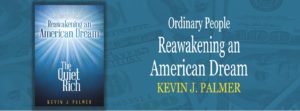
“You did it simply by doing something entirely different, knowing it required being flexible and taking chances.”
(My conversation continues with Thomas Seekins, a lone traveler, while we are on an archaeological dig in 2011.)
“Yes, but there was more going on behind the scenes. Back at the hotel, I was doing my own financial engineering. I restructured debt, negotiated past-due receivables, and even fired some deadwood employees. The hotel finally had positive cash flow, expanding profit margins, and shrinking debt. I was making more money than I’d ever dreamed of. I became known as the man who made the town come alive. The enormity of my new reality was mind-boggling, but I continued to face the challenges head-on, one step at a time.
“The town’s evolution continued. We renovated Harry’s old resort, and its occupancy rates climbed. Soon, the biggest hotels in the area took notice—even the mountain’s most lucrative hotel, owned by a large corporation in Toronto. The rumor was that the owners wanted to remain number one, and they intended to take me down a notch. They weren’t gonna let their MBA bosses from the big universities get smoked by some guy like me.” Tom grinned.
“Late one afternoon,” he continued, “I received a call from a shuttle driver in town alerting me that a Toronto suit was in Jasper for a big meeting at the best property in town. Sure enough, a week later I received a call to meet with that hotel’s managing director. We met for two hours, and when I drove home, I still couldn’t believe what I’d just heard. The corporation wanted to buy my hotel but didn’t want to pay me. They wanted to pay off the first-position bank loan and close down our hotel!”
“Unbelievable! What did you do?”
“The feeling of being disrespected kicked my thinking skills into high gear. I headed down to the bank that held the loan. It was a Friday afternoon. I walked in and requested to talk to the manager. He said he was very busy. When I insisted on an appointment, he finally invited me to his home that night.
“I brought a six-pack of beer, and we sat around the coffee table talking until almost one in the morning. Finally, the banker said, ‘I’ve seen you around for years and you have faithfully worked hard. I will refuse to sell them the past-due note if you can show me what you can do.’”
“You had an ace in the hole,” I observed.
“Yes, and I was ready to implement a deeper plan. The following Monday, I flew to Toronto determined to meet the executives who threatened to end my world. Expecting that I had come to sign over Harry’s hotel, the same suit who had visited Jasper just weeks before granted me a meeting.
“In the meeting room with the suit and other executives, I startled some of the highest-ranking businessmen around when I told them that my five-year plan was to be the number-one resort hotel in the area. After the executives caught their collective breath, I went on to propose they could become a partner—if they were willing to perform to my standards. Then, over time, they could earn complete ownership of the hotel.”
“That must have been some scene.”
“The top brass scratched their heads, but they listened because I said we would first discuss the hotel’s current assets and liabilities. Then I told them, ‘Next, you can tell me what you can bring to the table. If I feel your people can exceed my current expectations, then I will sign a letter of intent stating that if you keep all the salaried workers, you can keep any profits after the five-hundred-thousand-dollar bank loan is paid down. Then I’ll increase your percentage of ownership, and once Harry is dead, you will have a controlling interest to do what you want with the hotel.’ By the end of that day, I had an agreement from a top executive of one of the largest hospitality corporations in Canada.”
“It’s interesting that it was your balance of spiritual wisdom and discipline that gave you ownership of your destiny and opened the road to your success.”
“Thanks. In my travels, I was accustomed to letting things just be, even in the face of unfairness. But I also knew when to push my limits and “take the hill,” or face obstacles. I was able to keep the hotel open until Harry’s death—a bridge crossed, not burned. That was the bridge that connected me to my first million dollars.
“You can call it being impetuous or call it taking a risk. But making a quick decision to jump on the plane to Toronto wasn’t a random incident. Rather, it came as a result of consciously executed actions that wound my momentum like a clock spring. I was able to move forward without fear of the unknown, to see problems as change and change as opportunity.”
I was profoundly moved. “Personal power does not come by chance, Thomas. Rather, it comes as a rational process of fusing learned experiences from the past for a focused cause. By feeling pure joy and having the drive to find ways around obstacles, you created a balance in your life as you also set up for your next adventure.”
“Yes, and thanks for your observation, but I did leave out a couple of pieces to the puzzle. Within two years of the signing of the letter of intent, the company asked me to advise on operations of another property it owned for a handsome salary and a piece of ongoing equity. Four years after that, Harry died a proud and happy man.
“Several weeks after Harry died, I was meeting with the corporation’s CFO, who had become my friend. The CFO said he’d never seen anybody create net worth as conscientiously as I did. I asked if he knew how much that net worth was, because I’d never stopped to add it up. ‘Five million, roughly,’ the CFO replied. I hadn’t seen that one coming.”
Our first day on the dig ended at 10:00 p.m. when our conversation finally ran out of steam. We said good night.
The next morning at breakfast, Thomas told me that on the way to his tent, his mind had drifted back to thoughts of Sam in the train station. He thanked me for helping him remember and wanted me to know that he had put the day-to-day running of his numerous hotels in the hands of loyal employees because he had wanted to turn to focus on learning about his roots and helping his people.
At the end of our experience on the dig there, we had unearthed new artifacts and the promise of an improved understanding of ancient times. I had also gained a new friend in Thomas, and we kept in touch. Today, still a humble warrior, he spends his time on the Native American reservations in Arizona teaching and inspiring those who advocate for the advancement of Indian gaming. He encourages them not to be afraid to open doors and find something new, and he advises them that when things turn in their favor, they should collaborate to the benefit of all.
In the end, life worked itself out well for this free-spirited traveler turned multimillionaire. Tom gave himself an edge not only because of his personal essence and hard work but also because his momentum-creating philosophy moved him into affluence.
In my last journal entry from the dig, I wrote that Thomas said, “You may not always see the end of the road; it may be a little dark; it may be a little snowy, rainy, cold, and miserable. But go down there and check it out. Be yourself, enjoy your life, and be the best you can be. Something good always comes out of it.”
Read the complete success story in the book, The Quiet Rich: Ordinary People Reawakening an American Dream.
Kevin J. Palmer, Author
The Quiet Rich

